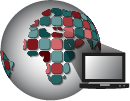The main conference sections and topics (but not limited) are as follow:
Information Technologies
Software Technologies and Programming; Digital Signal Processing and Applications; Database Management Systems and Information Systems; Business Intelligence, CRM- and ERP-Systems; Project Management and Quality Management Systems; Computational Social Science; Hypermedia, Multimedia and Social Media; Visualization Methods and Techniques; Augmented and Virtual Reality; Bioinformatics and Health Informatics.
Information Security
Security Policy, Methods and Tools; Cryptography, PKI and e-Signature; Biometrics and Authentication Technologies; Digital Rights Management Systems; Security Policy Analysis and Crisis Management; Cyber-attacks and Security; Energy Policy and Security of Supplies.
Networking and Communication Technologies
Networking – Protocols, Design, Investigation; P2P and Complex Networks; Grid Systems; Cloud Computing (Cloud Services and Applications); Mobile Cloud Computing; Internet of Things (IoT); Machine to Machine Communications (M2M); Autonomic Network Computing; Online Communities and Social Computing; Web-Based Applications.
Intelligent Systems and Applications
Intelligent and Agent Systems; Knowledge-Based Applications; Ontology and Semantic Web; Intelligent Transport Systems; Intellectual and Virtual Environments; User Modelling.
Technologies for System Design & Investigation
Automation of System Design and Research; Computer Architecture and Performance Evaluation; Parallel Systems and Technologies; Microarchitecture and Reconfigurable Computing; Computer Modelling and System Investigation; CAD Systems; Embedded Systems; Testing, Diagnostic and System Reliability; Power Systems, Automation and Control; Renewable Energy, Smart Systems and Energy Efficiency.
Technological Aspects of e-Governance & Privacy
* e-Society, e-Policy, e-Democracy, e-Voting; e-Access and e-Servicing; e-Government and e-Municipality; e-Learning – Systems and Applications; e-Business and e-Commerce; e-Health and Interoperability in Healthcare ICT.
* Privacy and Personal Data Protection (PDP); Models of PDP, Registration and Regulation; Policy and Practices for PDP; Technological Structures for PDP; Security Policy in PDP; PDP in Cloud Services.
